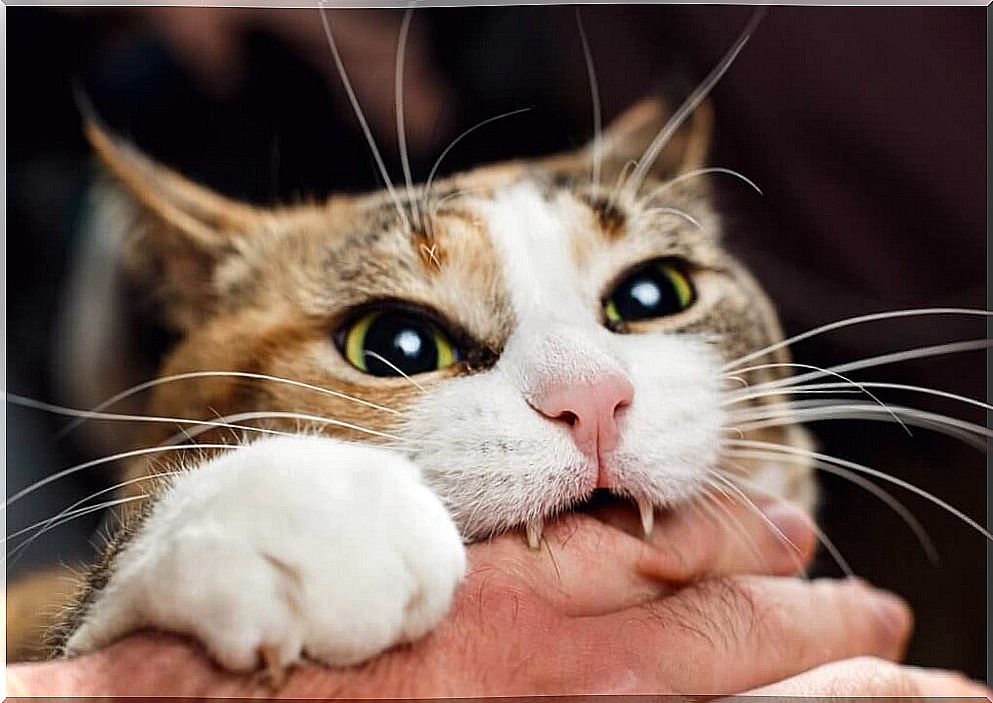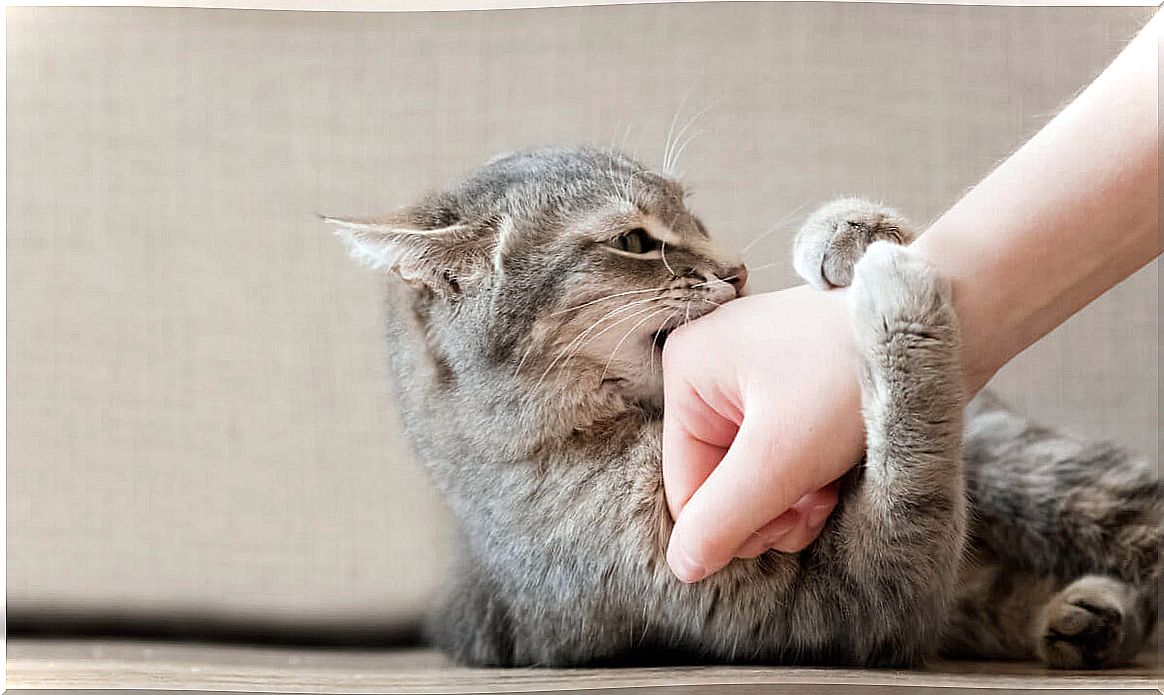4 Tips To Keep Your Cat From Biting You

Biting and scratching is part of the feline game. However, that doesn’t mean you can’t prevent your cat from biting you: these animals can adapt their play through learning, like any other species of mammal.
Often, this behavior (aggressive or otherwise) gives cats a reputation for being skittish or obnoxious. In this article, we’ll break down cat biting behavior to better understand it and provide tips for avoiding it.
Why can your cat bite you?
For cats, the act of biting has several uses: hunting, transporting objects, defending themselves, eating, playing and a long etc. However, when the bites are repetitive and focus on the human being with whom the animal lives, it is necessary to carry out an analysis to correct this behavior. Why does the cat bite its human? There are several reasons:
- Play: Cats play hunting, and the movement of the hands or feet are often good candidates for fictitious prey for the animal to practice.
- Organic causes: an unusual increase in aggression and biting can be indicative of pain or illness in the feline. Possible pathologies must be ruled out before issuing a causal diagnosis of this behavior.
- Fear or Stress: A cat that is constantly afraid, anxious, or stressed will be a cat that scratches and bites at gestures that should be recognized as harmless.
- Traumatic experiences: battered or stray cats, for example, are likely to develop aggression. Puppies’ poor socialization also leads to these types of behavior.
As you can see, none of these causes reflect the feline’s personality. While it’s true that some cats are more detached than others, respecting their space will never trigger bites or aggression.

4 tips to prevent your cat from biting you
As with any truly effective method of modifying an animal’s behavior, punishment is not an option. There are many things you can do to keep your cat from biting you without resorting to anger or violence. Check out 4 tips below.
1. The benefits of quiet play
Quiet play allows you to shift the cat’s focus of attention to something different from you, such as a toy. This in turn is very helpful in keeping the cat’s nervousness levels within healthy limits.
Using objects such as a small fishing pole that allow the animal to hunt something other than you, encourage your cat to play without you being the toy. Environmental enrichment for smell or intelligence challenges well complement quiet play, keeping the cats busy and avoiding stress.
2. Avoid reinforcing biting behavior
If your cat has gotten into the habit of biting while you play with her, it’s important to show her that your hands aren’t a toy or prey. To set this limit, it is usually sufficient to interrupt the game when the animal bites. There is no need to scold or say anything, just be consistent with this rule.
3. Create a peaceful and safe environment
If the cat has developed this behavior as a result of a sudden change in its routine, it is possible that the environment contains some stressor that disturbs it. Identify what it is and eliminate this factor, in order to create an environment that favors tranquility when playing.
4. Preventing your cat from biting you is also a matter of socialization.
When you adopt a kitten, it is quite possible that it will spend the socialization period with you. If he gets along with other cats, they’ll teach him how right it is to bite in play, but if it’s just you, a human, and the cat, you’ll need to instruct him.
It is important not to use your hands or feet to play with him and be consistent in correcting bad behavior. During this time, your feline’s behavior will be much more moldable, so you shouldn’t have much trouble getting to know and understand it.

One last tip to keep your cat from biting you
Sometimes, even respecting the animal’s space, filling its life with enrichment, and using behavior modification techniques, the problem may not be resolved. But don’t despair: sometimes the help of a professional is needed and that’s not a bad thing.
Seeing the veterinarian to rule out diseases or resorting to an ethologist are options that help in the beginning of the process or when you don’t know what else to do. Mastering communication with your cat is essential to a happy life for both of you, and these professionals can help you achieve that.






